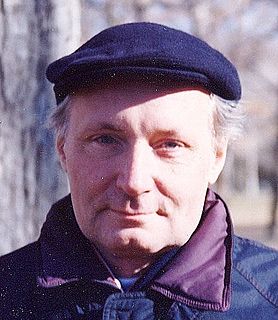A Quote by Jerry A. Coyne
Theology is the post hoc rationalization of what you want to believe.
Quote Topics
Related Quotes
the seeker who embraces positive theology finds ... that you can have all that stuff in the mall, as well as the beautiful house and car, if only you believe that you can. But ... if you don't have all that you want, if you feel sick, discouraged, or defeated, you have only yourself to blame. Positive theology ratifies and completes a world without beauty, transcendence, or mercy.
I do not believe that God intended the study of theology to be dry and boring. Theology is the study of God and all his works! Theology is meant to be LIVED and PRAYED and SUNG! All of the great doctrinal writings of the Bible (such as Paul's epistle to the Romans) are full of praise to God and personal application to life.
You see, my Lord Archbishop, what is "dubious" about my theology is not that it contradicts particular doctrinal teachings, things are much worse or better: what I want, is no more and no less than a fundamental change in the whole way that theology is done today; but I want this out of faith, not out of faithlessness.
The ultimate goal of theology isn't knowledge, but worship. If our learning and knowledge of God do not lead to the joyful praise of God, we have failed. We learn only that we might laud, which is to say that theology without doxology is idolatry. The only theology worth studying is a theology that can be sung!
Often, when I want to read something that is satisfying to me as theology, what I actually read is string theory, or something like that - popularizations, inevitably, of scientific cosmologies - because their description of the scale of things and the intrinsic, astonishing character of reality coincides very beautifully with the most ambitious theology. It is thinking at that scale, and it is thinking that is invested with meaning in a humanly evocative form. That's theology.
The idea that we live in a post-modern culture is a myth. In fact a post-modern culture is an impossibility; it would be utterly unlivable. Nobody is a post-modernist when it comes to reading the labels on a medicine bottle versus a box of rat poison! You better believe that texts have objective meaning!
You can see the rider serving the elephant when people are morally dumbfounded. They have strong gut feelings about what is right and wrong, and they struggle to construct post hoc justifications for those feelings. Even when the servant (reasoning) comes back empty-handed, the master (intuition) doesn't change his judgment.
I hope and believe my co-religionists understand and admit that I disclaim their theology in toto, and that by no twisting of language or darkening of its meanings can I be made to have any thing whatever in common with them about religious matters... they must take my word for it that there is nothing in common between their theology and my philosophy.


































